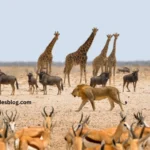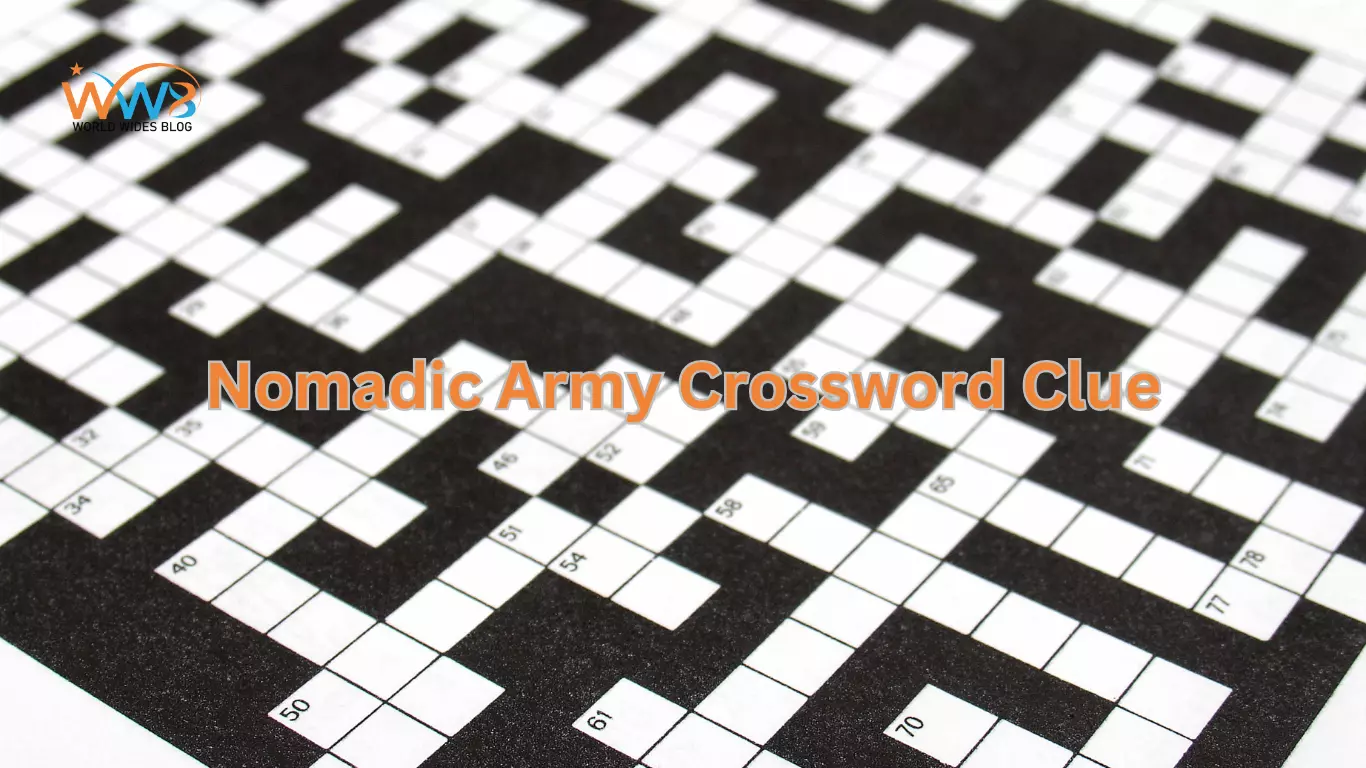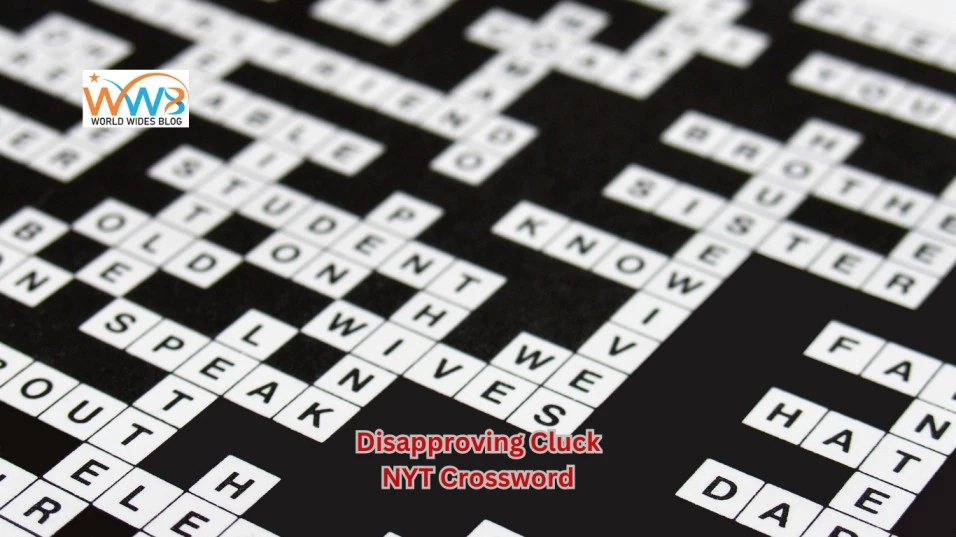Many people love doing crossword puzzles. They are fun and challenging. But have you ever found yourself stumped by a particularly tricky clue? If so, you’re not alone. The infamous Nomadic Army Crossword Clue is one clue that often leaves solvers scratching their heads. Let’s dive deep into what this clue means, its possible answers, and why it’s so fascinating.
What are crossword clues?
Crossword clues are essential hints provided to guide the solver toward the correct word or phrase. They can be straightforward or cryptic, often requiring a combination of logic, knowledge, and sometimes a bit of wordplay.
The allure of solving crossword puzzles
Solving a tricky crossword puzzle feels very satisfying. It’s a good exercise for the mind, a way to relax, and a daily habit for many people. Each puzzle is a new challenge to complete.
Types of Nomadic Armies
Nomadic armies have played pivotal roles in shaping history, each with unique characteristics and strategies that distinguished them from one another. Here are some of the most famous nomadic armies:
1. Steppe Nomads
Examples: Mongols, Huns, Scythians
Key Characteristics:
- Mobility: Steppe nomads were highly mobile, often relying on horses to traverse vast distances quickly.
- Warfare Tactics: They were known for their hit-and-run tactics, archery from horseback, and psychological warfare, which they used to intimidate opponents.
- Survival: These armies were adept at living off the land, using their deep knowledge of the steppes to find resources.
Impact: Steppe nomads like the Mongols created vast empires, and their military strategies are still studied today for their effectiveness and innovation.
2. Desert Nomads
Examples: Bedouins, Tuareg
Key Characteristics:
- Adaptability: Desert nomads mastered the harsh conditions of the desert, using camels for transportation and relying on their knowledge of oases and desert routes.
- Warfare Tactics: They employed guerrilla tactics, ambushing enemies and retreating into the vast, uncharted desert where pursuit was difficult.
- Survival: Their survival depended on their ability to navigate the desert and manage scarce water resources efficiently.
Impact: Desert nomads played significant roles in the spread of Islam and controlled vital trade routes across the Sahara and Arabian deserts.
3. Forest and Jungle Nomads
Examples: Pygmies, Amazonian tribes
Key Characteristics:
- Environment Mastery: These nomadic groups thrived in dense forests and jungles, using their knowledge of the terrain to avoid larger, more organized armies.
- Warfare Tactics: They often utilized ambushes and traps, using their intimate knowledge of the environment to outmaneuver and outlast opponents.
- Survival: These armies depended on hunting, gathering, and the ability to move stealthily through rugged terrain.
Impact: While not as expansive as steppe or desert nomads, forest and jungle nomads have been crucial in resisting invasions and preserving their cultures against external pressures.
4. Mountain Nomads
Examples: Kurds, Berbers
Key Characteristics:
- Terrain Advantage: Mountain nomads used the rugged terrain to their advantage, making it difficult for enemy armies to engage them in battle.
- Warfare Tactics: They employed defensive strategies, using the natural fortifications provided by mountains to protect their communities and ambush invaders.
- Survival: Their survival was closely tied to their ability to navigate and utilize the mountainous regions they called home, often relying on livestock for sustenance.
Impact: Mountain nomads have historically resisted empires and nation-states, maintaining their independence and cultural identity through strategic use of their environment.
5. Sea Nomads
Examples: Vikings, Sea Gypsies (Bajau)
Key Characteristics:
- Naval Expertise: Sea nomads excelled in maritime navigation and warfare, using their knowledge of the seas to raid, trade, and explore new territories.
- Warfare Tactics: They often conducted surprise attacks from the sea, striking quickly and retreating before larger forces could respond.
- Survival: Their survival hinged on their ability to find resources both at sea and on the coasts, as well as their skills in shipbuilding and seamanship.
Impact: Sea nomads like the Vikings left a lasting effect on European history, shaping the political and cultural landscapes through their raids and explorations.
6. Plains Nomads
Examples: Comanche, Sioux
Key Characteristics:
- Horse Culture: Plains nomads in North America were highly skilled horsemen who used their mounts for transportation and warfare.
- Warfare Tactics: They often employed hit-and-run tactics, using their mobility to raid settlements and escape before reinforcements could arrive.
- Survival: Their survival was closely tied to their ability to hunt bison and other game and their deep understanding of the plains ecosystem.
Impact: Plains nomads significantly resisted European colonization in North America, maintaining their way of life despite the settlers’ encroachment.
7. Nomadic Pastoralists
Examples: Maasai, Mongolian herders
Key Characteristics:
- Livestock-Based Economy: These nomads centered their lives around herding animals, moving with the seasons to find grazing land.
- Warfare Tactics: They defended their herds and territories using the mobility provided by their livestock, often engaging in skirmishes with rival groups.
- Survival: They needed to care for their animals and adjust to environmental changes.
Impact: Nomadic pastoralists have maintained their traditions for centuries, playing a crucial role in their region’s cultural and economic landscapes.
Understanding the Nomadic Army Crossword Clue
What does ‘Nomadic Army’ imply?
At first glance, “nomadic army” might seem odd. However, it draws on historical and cultural references that can point to various answers. Understanding these references is critical to solving the puzzle.
Historical context of nomadic armies
Throughout history, nomadic armies have been a significant force. These groups of fighters traveled from place to place, often riding horses, without a permanent home. The most famous are the Mongol hordes led by Genghis Khan, who conquered vast territories across Asia and Europe.
Common Interpretations and Answers
Popular answers for the clue
One of the most common answers to the “nomadic army” clue is “horde.” This word perfectly encapsulates the idea of a large, moving group of people, especially in a historical context.
Why ‘Horde’ is a frequent solution
“horde” comes from the Turkic-Mongol word “ordu,” which means camp or army. Over time, it has come to represent any large, moving crowd, often used negatively. This makes it a fitting answer for a crossword clue related to a nomadic army Crossword Clue.
Other possible answers
While “horde” is the most common answer, depending on the number of letters and the puzzle’s theme, other answers could include words like “tribe,” “clan,” or even “band.” It has a different meaning but might work depending on the situation.
The Role of Wordplay in Crossword Puzzles
How Wordplay Influences Crossword Clues
Wordplay is essential in many crossword puzzles. Solvers often need to think beyond the literal meaning of the clue to arrive at the correct answer. Puns, anagrams, and other forms of word manipulation are common tactics.
Analyzing the wordplay in ‘Nomadic Army’
The phrase “nomadic army” can be a form of wordplay, suggesting a literal group of warriors and any large, roaming group. Depending on the solver’s perspective, this broad interpretation opens the door to various possible answers.
Tips for Deciphering Tough Crossword Clues
Look for synonyms
When faced with a challenging clue like “nomadic army,” an excellent first step is to think of synonyms. Words like “horde,” “troop,” or “swarm” might come to mind.
Consider the number of letters.
The number of letters in the answer is an important clue. Knowing the word length you’re looking for can significantly narrow down your options.
Understanding the theme of the puzzle
Many crossword puzzles have a theme, and understanding this can provide valuable insight into solving tricky clues. For example, if the puzzle has a historical theme, you might lean toward answers like “horde” or “tribe.”
The Fascination with Nomadic Cultures
Who were the nomadic armies?
Nomadic armies were groups of warriors who lived a mobile lifestyle, often moving in search of resources or new territories. These armies were typically well-adapted to the harsh environments in which they lived, making them formidable opponents.
Famous nomadic armies in history
The Mongol Empire, led by Genghis Khan, is the most famous example of a nomadic army. Others include the Scythians, Huns, and various Turkic tribes, all of whom played crucial roles in shaping the history of their regions.
The Linguistic Connection
The origin of the word ‘horde’
“horde” comes from the Turkic-Mongol word “ordu,” which means a military camp or army. Over time, this word evolved and entered various languages, carrying the connotation of a large, organized group.
How language shapes our understanding of history
Language helps us understand and see historical events. The words we use, like “horde,” carry meanings that reflect the perspectives of those who coined them, often with a mix of awe and fear.
Cultural Significance of Nomadic Armies
Impact on civilizations
Nomadic armies were not just raiders but also traders and cultural transmitters. Their movements across continents facilitated the exchange of goods, ideas, and technologies, profoundly impacting the civilizations they encountered.
Legacy in modern culture
The legacy of nomadic armies lives on in modern culture, not just in history books but in films, literature, and even video games. They are often portrayed as fierce, unstoppable forces, embodying the untamed spirit of the wilderness.
Why Crossword Puzzles Use Historical References
Educational Value
Crossword puzzles often incorporate historical references to educate and engage solvers. These clues provide a fun way to learn about history, encouraging curiosity and deeper exploration of the past.
Engaging the solver with intriguing clues
Historical references also provide intriguing clues challenging the solver’s knowledge and wit. They add a layer of complexity and richness to the puzzle, making the solving process more rewarding.
When picking a nomadic army crossword clue, think about these things
Creating crossword clues involving nomadic armies can be both intriguing and challenging. To craft compelling and engaging clues, consider the following factors:
1. Historical Accuracy
When selecting a nomadic army Crossword Clue, it’s essential to ensure historical accuracy. Make sure the clue is rooted in well-documented history. For example, referencing “Genghis Khan’s army” is more accurate than a vague term like “ancient nomads.”
2. Familiarity
Choose a nomadic army that is relatively well-known to a broad audience. While you might be tempted to delve into obscure tribes, sticking to more familiar names like the Mongols, Huns, or Vikings will make your crossword more accessible and enjoyable for solvers.
3. Clue Difficulty
Consider the difficulty level you want for your crossword. If the puzzle is aimed at more experienced solvers, you might opt for a less apparent nomadic army or use indirect references (e.g., “Attila’s tribe” for the Huns). For beginners, more explicit and direct clues (e.g., “Famous Mongol leader”) will be more appropriate.
4. Clue Type
Decide whether your clue will be straightforward or involve wordplay. For example:
- Straightforward Clue: “Nomadic tribe led by Genghis Khan” (Answer: Mongols)
- Wordplay Clue: “Wandering warriors on horseback” (Answer: Huns)
Wordplay can add a layer of challenge and enjoyment but should still be solvable with the given hints.
5. Crossword Theme
If your crossword has a particular theme, ensure that the nomadic army Crossword Clue aligns with it. For instance, if the theme is “Historical Conquerors,” then clues involving the Mongols or Huns would be appropriate. If the theme is broader, like “World Cultures,” you might choose a more culturally significant nomadic group like the Bedouins.
6. Clue Length and Complexity
Look at how long and complex the answer is compared to the clue. Short answers require more specific clues to prevent ambiguity, while longer answers can accommodate more complex or nuanced hints. For example, “Nomads of the Asian steppes” might point to “Mongolians,” while a longer clue might be “Fierce warriors who once ruled from Eastern Europe to the Sea of Japan.”
7. Crossword Grid Constraints
The design of your crossword grid may limit the length of the answers you can use. Ensure that the nomadic army you choose fits within these constraints. For example, “Huns” is a short, four-letter answer, while “Mongolians” requires more space and might be more challenging to fit.
8. Crossword Solver’s Knowledge
Consider your target audience’s knowledge level. If your crossword is intended for a general audience, opt for clues that require commonly known information. If you’re targeting history buffs or enthusiasts, you can choose more specific or lesser-known nomadic armies.
9. Use of Cross-References
Consider cross-referencing if your crossword includes multiple clues about nomadic armies or related topics. For example, one clue might be “Nomadic army known for archery,” with the answer “Mongols,” and another could be “Leader of the Mongols” with the answer “Genghis Khan.”
10. Puzzle Balance
Ensure that the difficulty of the nomadic army clue is balanced with the rest of the crossword. Make the Crossword Clue clue manageable if most of your clues are easy. Conversely, having a more complex clue is okay if your crossword is generally challenging.
11. Cultural Sensitivity
Consider the cultural context when referring to nomadic armies, particularly those still culturally significant today. Avoid language that might be seen as disrespectful or oversimplified, and ensure that your clues honor the history and legacy of these groups.
FAQs
What Defines a Nomadic Army?
- A nomadic army is characterized by mobility, adaptability, and unconventional warfare tactics. These armies often moved frequently, seeking resources and strategic advantages.
Why Are Nomadic Armies Popular in Crosswords?
- Nomadic armies are popular in crosswords because they offer a rich source of historical and cultural references. Their unique characteristics and famous leaders make for engaging and challenging clues.
How Do Nomadic Armies Survive?
- Nomadic armies survived by adapting to their environments, employing hit-and-run tactics, and utilizing their mobility to evade and outmaneuver enemies. They were skilled in finding resources and enduring harsh conditions.
What are the Key Features of a Nomadic Army Crossword Clue?
- Key features of a nomadic army include mobility, adaptability, unconventional warfare tactics, and survival skills. These characteristics allowed them to thrive in various environments and overcome diverse challenges.
How Can I Improve My Crossword Skills?
- To improve your crossword skills, practice regularly, expand your vocabulary, and familiarize yourself with standard themes and clues. Studying historical topics, like nomadic armies, can also enhance your ability to solve related puzzles.
Final Thoughts
Solving crossword puzzles is more than just a pastime; it’s a journey into the depths of language, history, and culture. The nomadic army crossword clue shows how a simple phrase can convey lots of information. So, the next time you encounter a challenging crossword clue, remember to think broadly, consider the historical context, and enjoy the discovery process.











